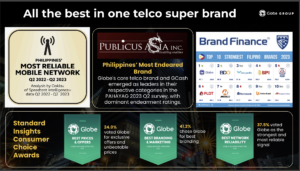Filipino MSMEs turn to friends and family amid business funding roadblocks

Micro, small and medium-sized enterprises (MSMEs) make up more than 99% of businesses in the Philippines and employ around 62% of the workforce, however these essential businesses experience significant barriers to growth when it comes to accessing business funding.
A new report from cloud banking platform Mambu, titled the ‘Small businesses, big growth’ report, surveyed over 1,000 MSME owners globally, including Filipino SME owners, who set up their company and applied for a business loan in the last five years.
The survey found that three in four (77%) of micro, small and medium-sized enterprises surveyed have been unable to secure sufficient, or any, funding on at least one or more occasion over the last five years. Of these businesses unable to secure sufficient funding, 48% went on to experience cash flow issues, 48% were unable to launch new products or services and 35% struggled to pay back creditors.
While Filipino banks and financial institutions were previously required to set aside a minimum of 8% of their loanable funds for micro and small enterprises (Republic Act No. 9501), this law lapsed in 2018, and the most recent estimates show that current bank loan funds allocated to MSMEs is well under this threshold at around 5.4%[1].
To overcome these barriers to growth, MSMEs are turning to challenger banks and tech-enabled alternative lenders for funding, embracing the benefits that technology can bring to the lending process, such as faster applications and loan processing. With 93% of Filipino MSMEs indicating they would consider changing lenders for a better experience, there is a clear opportunity for new entrants.
Technology enabling superior customer experiences in lending
Tech-enabled lenders leverage technology like artificial intelligence, machine learning, data analytics and cloud to offer faster loan applications and processing, with much less arduous application requirements. In fact, some digital lenders offer applications that can be completed in just five minutes, with loans approved and funds processed within 24 hours. This is a vast improvement on the traditional lending journey for MSMEs.
In order for the Filipino economy to recover from the impact of the pandemic, it is vital that banks and lenders embrace these new technologies that can dramatically improve the lending experience for MSMEs. Mambu’s survey also identified that the length of time it takes to apply for a loan is a major influence on businesses when choosing a lender, so there is also a clear business case for financial service providers to transition to a more digital approach.
What’s next?
The message from our research is clear: SMEs want better support and they’re not afraid to change lenders to find it. 93% of Filipino businesses say they are open to changing lenders for a better offer. If this demand goes unaddressed, it is a huge missed opportunity for the economy and SME banks and lenders.
Download Mambu’s ‘Small businesses, big growth’ report to learn about the pain points being experienced by SMEs when it comes to lending.
[1] Business World: The SME finance gap during the pandemic, Sept 17, 20221
Spotlight is BusinessWorld’s sponsored section that allows advertisers to amplify their brand and connect with BusinessWorld’s audience by enabling them to publish their stories directly on the BusinessWorld Web site. For more information, send an email to online@bworldonline.com.
Join us on Viber to get more updates from BusinessWorld: https://bit.ly/3hv6bLA.




